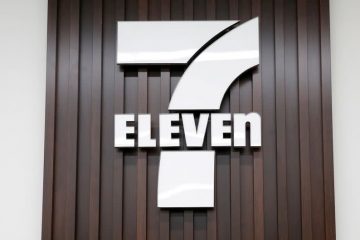Things are getting worse for EV startups

Prior to the election, electric car startups were having difficulties. They might go into a spiral if Donald Trump wins. Earlier this year, a number of well-known businesses declared bankruptcy, including Arrival, a bus manufacturer, and Fisker, an electric SUV producer. Following BMW’s cancellation of a crucial order, Swedish battery manufacturer Northvolt became the most recent casualty last week, declaring bankruptcy.
According to a Wall Street Journal examination of their most recent filings, at least a dozen additional firms that focus on batteries or electric vehicles could run out of money by next summer. Even the stock of more established startups, including Lucid Group and Rivian Automotive, has dropped by 40% or more this year due to an increasingly difficult outlook. Investors are still concerned about prices and the possibility that the electric vehicle manufacturer won’t receive the money if the agreement isn’t finalized by Inauguration Day, despite Rivian receiving conditional clearance this week for a government loan of up to $6.6 billion to increase manufacturing capacity.
The declining demand for electric vehicles, growing expenses, and supply-chain challenges have severely hampered the capacity of many of these startups to launch new products on time. Billions of dollars in market value have been lost due to collapsing stock prices. Plans for investment in the United States, some of which have benefited from state and federal subsidies, are in jeopardy due to the changing political climate.
“With consumer demand declining, it’s just a disaster out there,” stated Ted Brandt, CEO of Marathon Capital, an investment bank that focuses on sustainable energy.An increasingly grave financial scenario is shown by a Journal investigation of 54 publicly traded EV and battery firms. Already, seven businesses have declared bankruptcy. Thirteen of the 36 active businesses with enough data for analysis are expected to go bankrupt by next summer, and three-quarters are losing money. It is anticipated that the Trump administration will further hinder their efforts. Demand has been boosted by a $7,500 tax credit for EVs, which the president-elect has promised to eliminate. Industry leaders are also worried that during Trump’s second term, money from the Biden administration for battery and electric vehicle technologies may be at risk.
Costs may also rise as a result of new or higher tariffs on imported automobiles and car parts, such as those that Trump proposed this week on Canada, Mexico, and China. Demand for batteries and the chemicals like lithium that power them is being severely strained by the obstacles that are tearing through the automotive supply chain. Brandt stated, “A whole ecosystem is collapsing.”
Riding a tide of enthusiasm for businesses looking to replicate Tesla’s success over the last ten years, many of the startups went public in recent years. A surge in so-called reverse-merger deals, when a startup company joins forces with a special-purpose acquisition company (SPAC) to go public, was exploited by some. Although these transactions give businesses a quicker path to the public markets than a conventional IPO, it has been demonstrated that they benefit insiders at the expense of other investors.
For more well-known Western automakers like Ford and General Motors, the shift to a second Trump administration also occurs at a crucial moment. Since sales haven’t turned out as expected, these automakers, who have committed billions of dollars to grow their EV lines, are now postponing or withdrawing part of their future investments. Many are concerned about slipping even further behind new competitors in China, like battery giant CATL and electric vehicle manufacturer BYD. Analysts caution that a U.S. withdrawal from clean energy sectors could widen China’s enormous advantage in these areas.
According to Aniket Shah, global head of sustainability and energy transition strategy at investment bank Jefferies Group, “if they keep doing that, then we’ve just given up on a major economic driver of the next 50 years.” Northvolt, which was privately held, was one of the most beautiful implosions in the business. In over ten years, the business, which aimed to create batteries with a smaller carbon footprint, received almost $15 billion from investors such as the European Union, Goldman Sachs Asset Management, and Volkswagen.
The company’s valuation increased due to investor enthusiasm for its battery technology and the track record of CEO Peter Carlsson, a former supply-chain manager at Tesla. The company’s plans were upset and it was forced into bankruptcy protection due to the declining EV industry and BMW’s cancelled purchase. Since then, Carlsson has stepped down. Other U.S. government-backed firms are also struggling. A $475 million government loan has been approved for Li-Cycle Holdings, a company that has pledged to convert used batteries into valuable materials, to assist in the construction of a plant in Rochester, New York.
It barely had enough cash on hand at the end of September, however, to cover operations for roughly six months. Due to escalating expenses, the Canadian company, which is financially supported by miner Glencore, has put a halt to the factory’s construction. When a reverse stock split is taken into consideration, Li-Cycle shares have dropped more than 97% from their listing price. The company is certain it can raise the funds required to complete the Rochester project and establish a self-sustaining enterprise, according to Chief Executive Ajay Kochhar. According to him, “investors are throwing the baby out with the bath water” in the industry.
In an effort to save money, Canoo, a manufacturer of electric vans and trucks, has laid off almost 25% of its employees in Oklahoma City. After going public in 2020 through a SPAC sale, it had projected to reach $1.4 billion in revenue this year and had been given a $113 million incentive package by the state to generate more than 1,300 employment at its vehicle and battery operations in Oklahoma. Chief Executive Tony Aquila remarked, “It feels like a punch to the face every morning trying to develop vehicles that have had all of their components outsourced to China for so long.”
This month, the business obtained a $12 million loan from an Aquila-controlled financial firm. SPAC transactions are still being pursued by some startups. Thunder Power Holdings, a Wilmington, Delaware-based business that plans to create better EVs using artificial intelligence, closed a reverse merger deal in June. Since then, shares trading under the symbol “AIEV” have dropped over 97%, closing Wednesday at 25 cents. Brian Dobson, a managing director at brokerage Clear Street who has kept a close eye on the industry, stated, “A lot of these management teams go into it thinking they’re going into the next Tesla, but that proves to be more the exception than the rule.”










